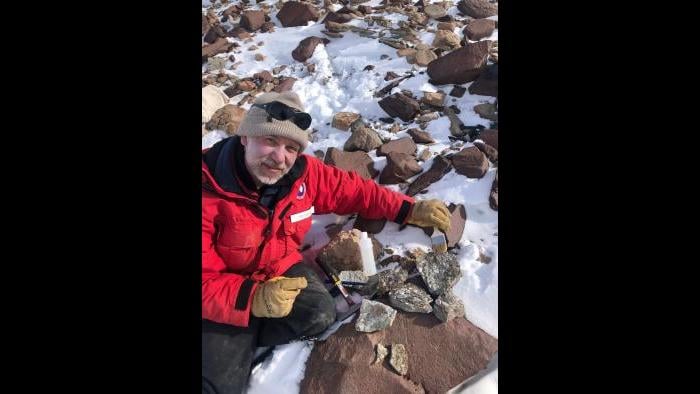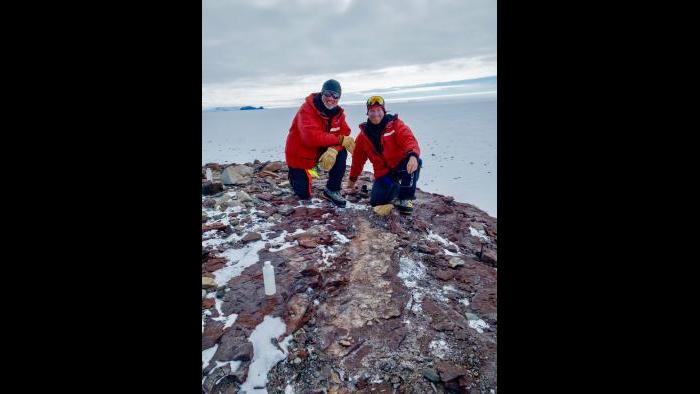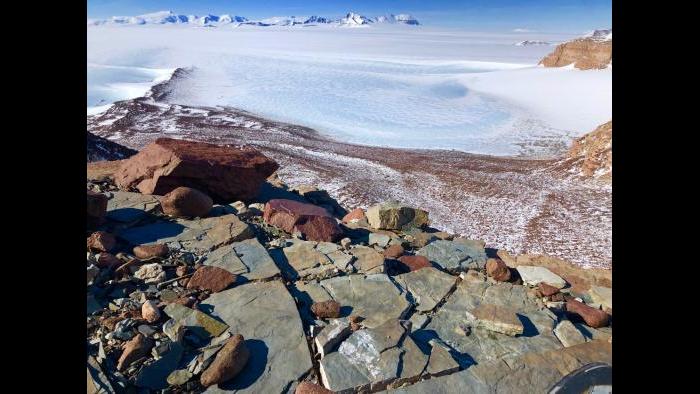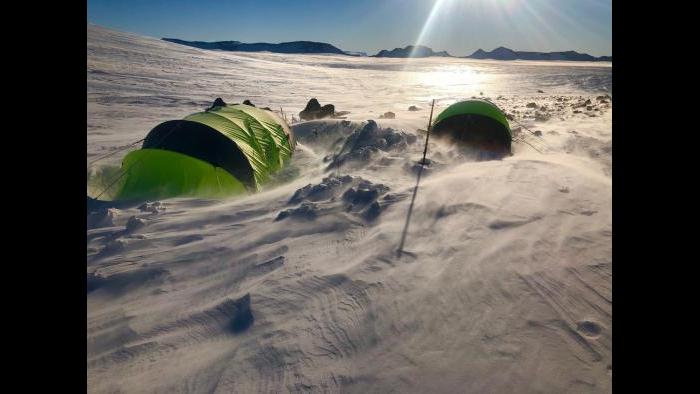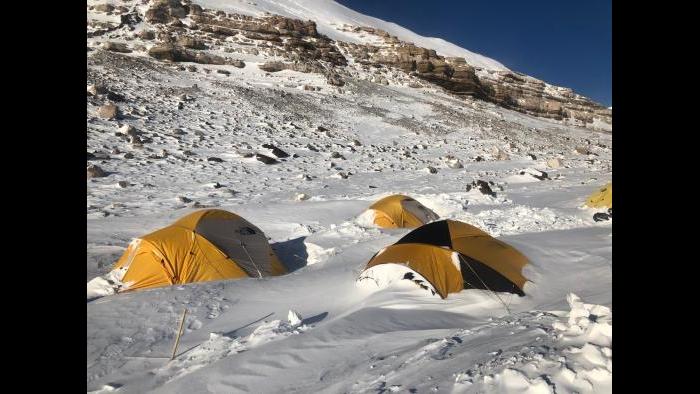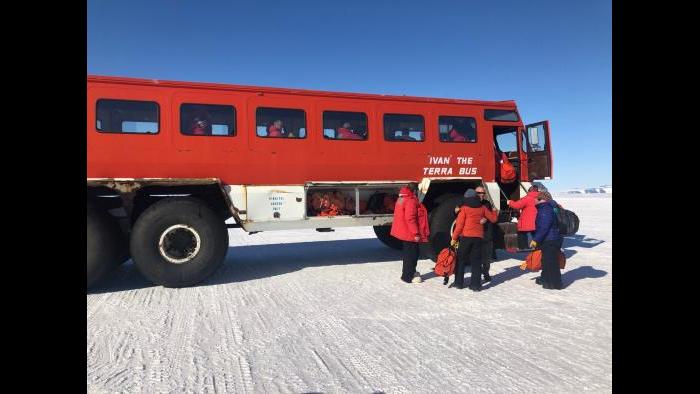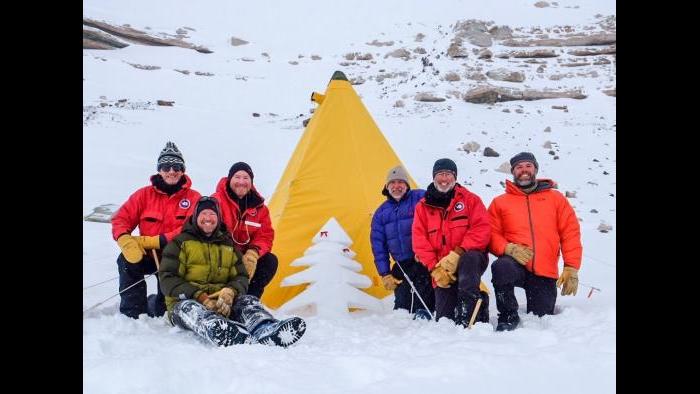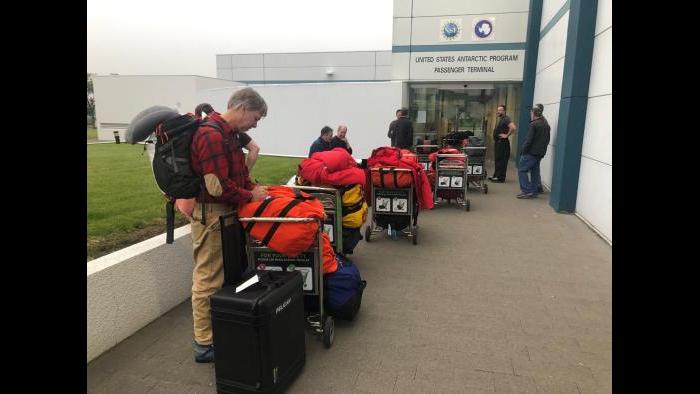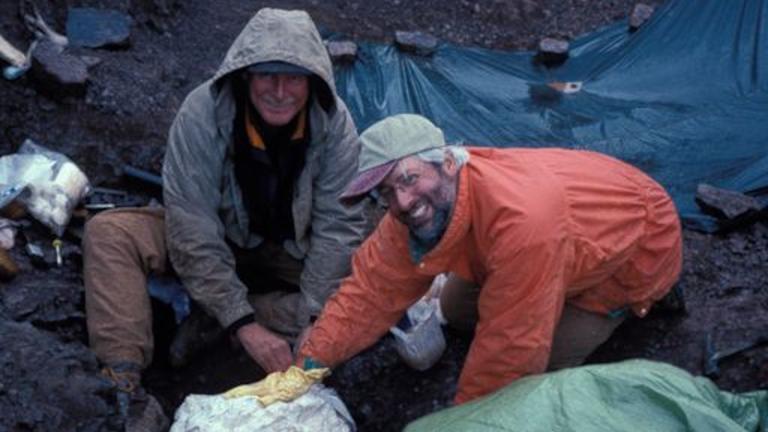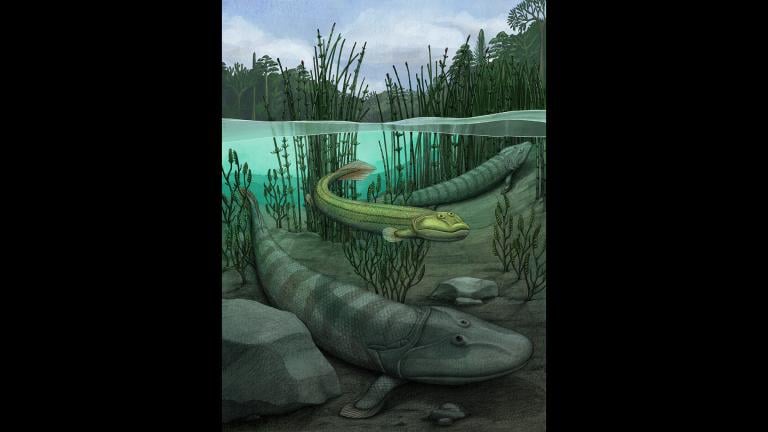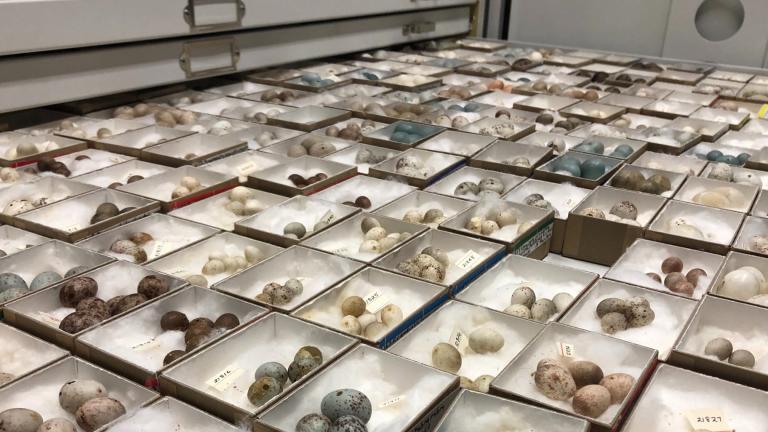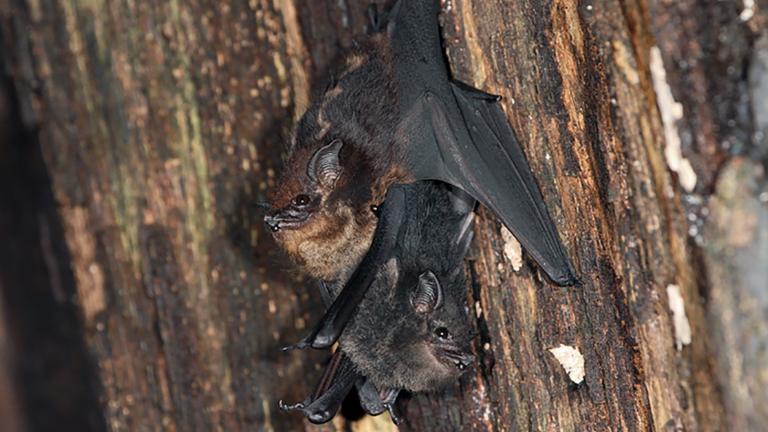Renowned University of Chicago paleontologist Neil Shubin recently returned from an expedition to search for fossils in Antarctica.
This was Shubin’s second trip to the icy continent, though it “took a whole lot more prep,” he said. Planning for the excursion began about a year ago.
“It’s a tough place to work every year,” Shubin said. “You have to pass very strict medical tests. There are fitness levels. You have to get certified each time. So to spend two months in the field took me about six months just to get it together.”
Shubin doesn’t anticipate returning each year to the Antarctic. “It’s hard to do that every year. It would be brutal actually,” he said.
We asked Shubin to tell us about his trip.
What sort of fossils were you looking for?
We were searching for early limbed animals and early fish and stuff like that. We were there for two months living on the ice with snowmobiles going round to mountains that poked through the ice.
What we are interested in is Antarctica 375 million years ago – that’s the age of the rocks – and it was like an Amazon delta. A huge delta system. Tropical – it’s kind of hard to imagine it that way.
Were you in the same location as your last trip?
No this was different. Way more extreme. Incredibly beautiful.
Amazingly, at the top of these mountains is the right rock to work on so we would park the snowmobiles at the base of the mountain and then climb up about 1,000 feet or whatever and we saw all kinds of bones in there. There were literally hundreds of layers with fossils in them in this region of Antarctica.
Is that because the continent of Antarctica has moved?
Yes, in part. And it’s also because the climate itself has changed. It was much warmer… where Australia is today was where Antarctica was back then only much more towards the equator. But also the world was quite a bit warmer at that time, there was no ice at the poles. So all of that meant that Antarctica was a tropical rainforest – it was a real Eden for animals. So that’s why we were there. We trained. We had a mountaineer with us because we were going over areas with crevasses. Roping up, climbing mountains looking at this gorgeous landscape.
What was the composition of the team?
We had folks from Australia. Some folks from Princeton. Some from Philadelphia. I was the only one from U of C.
Had people looked for fossils in this area before? How much did you know going in?
What got us there were the people who actually mapped the rocks geologically. So a bunch of Kiwis and Australians back in the late ‘80s and early ‘90s really mapped those rocks pretty carefully doing what geologists usually do. They look at the rocks, they look at the sediments and in the process they find fossils. They were able to date the rocks. Basically they set us up, they had revealed the incredible potential of the area. So our job was to sort of build on their work and explore these areas afresh.
Do you think you’ve discovered new species?
Yes. We definitely have cousins of Tikaalik – the limbed fish – there’s no doubt about that. We definitely have early sharks. We definitely have important groups.
How does this site compare to other places where you have looked for fossils?
It was richer in a lot of ways – there was more bone. But it didn’t have … the whole skeletons were kinds of mish-mashed. It was so dense and currents pulled these things in so it was essentially one animal piled on top of the other. So disentangling it all is a huge (job). It’s a huge graveyard.
It must give you an enormous sense of accomplishment to do this kind of work.
Oh yeah. Just basic exploration. It’s amazing stuff. It’s really an amazing privilege to work there. It’s one of the few places on the Earth that is largely unexplored. It’s really remarkable.
Related stories:
Fossil Hunt Leads University of Chicago Professor to Antarctica
Chicago is Most Dangerous City for Migratory Birds, Study Finds
Lose a Pet? Chicago Shelter to Use Facial Recognition App to Help Reunite Animals, Owners
White People’s Eating Habits Produce Most Greenhouse Gases, Study Finds

